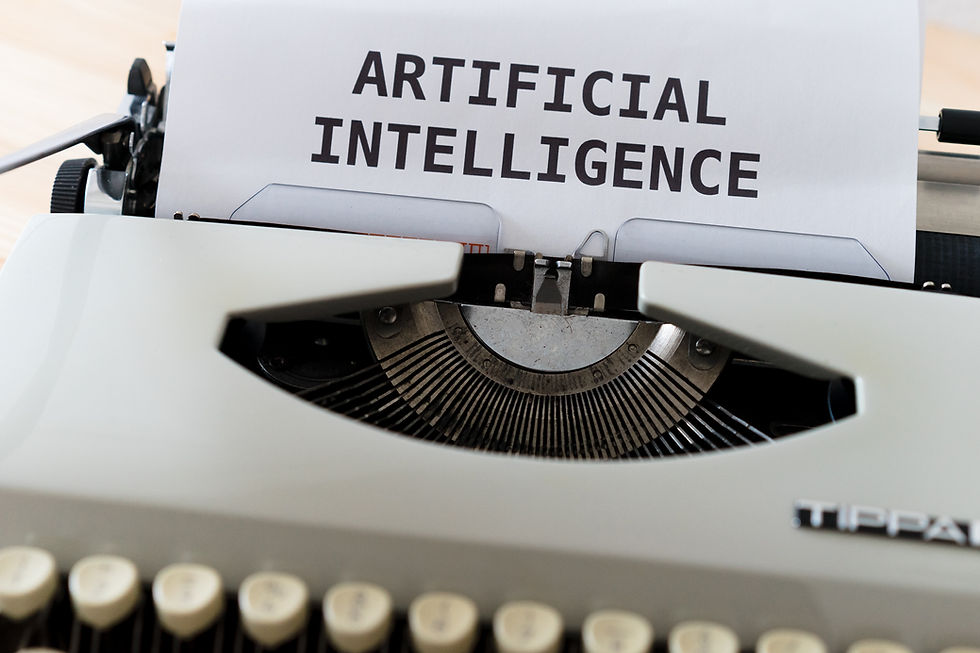How Can Artificial Intelligence Help Reduce Depression and Bipolar Disorder Misdiagnosis?
- Connor Whiteley

- Mar 22, 2021
- 3 min read

In today's episode of The Psychology World Podcast, we'll be looking at the clinical psychology topic of How Artificial Intelligence Can Be Used to Help Diagnosis Depression and Bipolar Disorder?
If you remember episode 49 of the psychology podcast, you'll know how much I love artificial intelligence. This episode is great too!
This episode has been sponsored by Clinical Psychology.
Therefore artificial intelligence can assist researchers and clinicians in disciplines that involve complex problems and nuances. This includes clinical psychology because there are lots of factors and nuances that need to be analysed. For example, in mental conditions, the severity of them differs for every patient or client. This can makes diagnosis difficult and can lead to misdiagnosis.
Thankfully, artificial intelligence can be used to help in these situations.
In addition, artificial intelligence machine learning (basically how you train artificial intelligence) is increasingly being used in science as part of data analysis and other purposes. Just do a Google search on this and you'll see hundreds of great applications.
From finding cancerous growths doctors have missed to health benefits.
Why Is It Difficult to Tell Depression and Bipolar Disorder Apart?
As we know depression and bipolar have many similarities. For example, both mental conditions feature long periods of sadness and depression that can last weeks days, weeks and months.
Some other reasons why depression and bipolar disorder is confused is because both mental conditions result in a loss of appetite, insomnia, fatigue, a feeling of lack of self-worth, as well as the inability to concentrate according to the National Institute of Mental Health (NIH).
As a result, there are a lot of commonalities between these conditions so it isn't surprising bipolar disorder can be misdiagnosed.
How Can Artificial Intelligence Help Reduce Mental Health Misdiagnosis?
Interestingly, artificial intelligence can have great benefits as shown in a study (Reference at the bottom of the psychology blog post) where participants with depressive symptoms ranging in age from 18 to 45 years old were recruited online. And from an initial sample of 5,422 enrolled, 3232 individuals completed a range of online mental health questionnaires.
As well as 1377 people provided blood samples, and 924 participants were invited to complete a telephone diagnostic interview using the World Health Organization World Mental Health Composite International Diagnostic Interview (WHO WMH-CIDI or CIDI). This is a commonly used diagnostic tool for assessing mental conditions according to the DSM-IV and ICD-10.
Also because this is an amazingly detailed study from 924 participants that provided blood samples only 688 participants had usable blood samples. Leading to the blood samples, online questionnaires and phone interview to be analyzed.
In addition, the machine learning algorithm used a decision tree-based method called Extreme Gradient Boosting (XGBoost) to differentiate participants with bipolar disorder from
people with depression who self-report a current major depressive disorder diagnosis. Also, the participants' blood samples were analysed for biological markers that targeted 203 unique peptides that represent 120 proteins. Presumably, the two mental health conditions have different levels of these proteins in the blood.
Furthermore, a researcher from the study said: “The diagnostic algorithm accurately identified patients with BD in various clinical scenarios, and could help expedite accurate clinical diagnosis and treatment of BD,”
Overall, this great study shows that by using a diagnostic machine learning algorithm along with blood biomarker data and data from online questionnaires. This may reduce the misdiagnosis of bipolar disorder like major depression. And whilst this is a proof of concept demonstration, it does show the potential for empirical evidence-based AI machine learning to improve mental health treatment as well as its outcomes in the future.
I really hope you’ve enjoyed this clinical psychology episode. If you want to learn more please check out the links below:
Have a great day, everyone!
Psychology Reference
I truly hope that you’re enjoyed this blog post and if you feel like supporting the blog on an ongoing basis and get lots of rewards, then please head to my Patreon page.
However, if want to show one-time support and appreciation, the place to do that is PayPal. If you do that, please include your email address in the notes section, so I can say thank you.
Which I am going to say right now. Thank you!
Click www.paypal.me/connorwhiteley1 to go to PayPal.







Comments